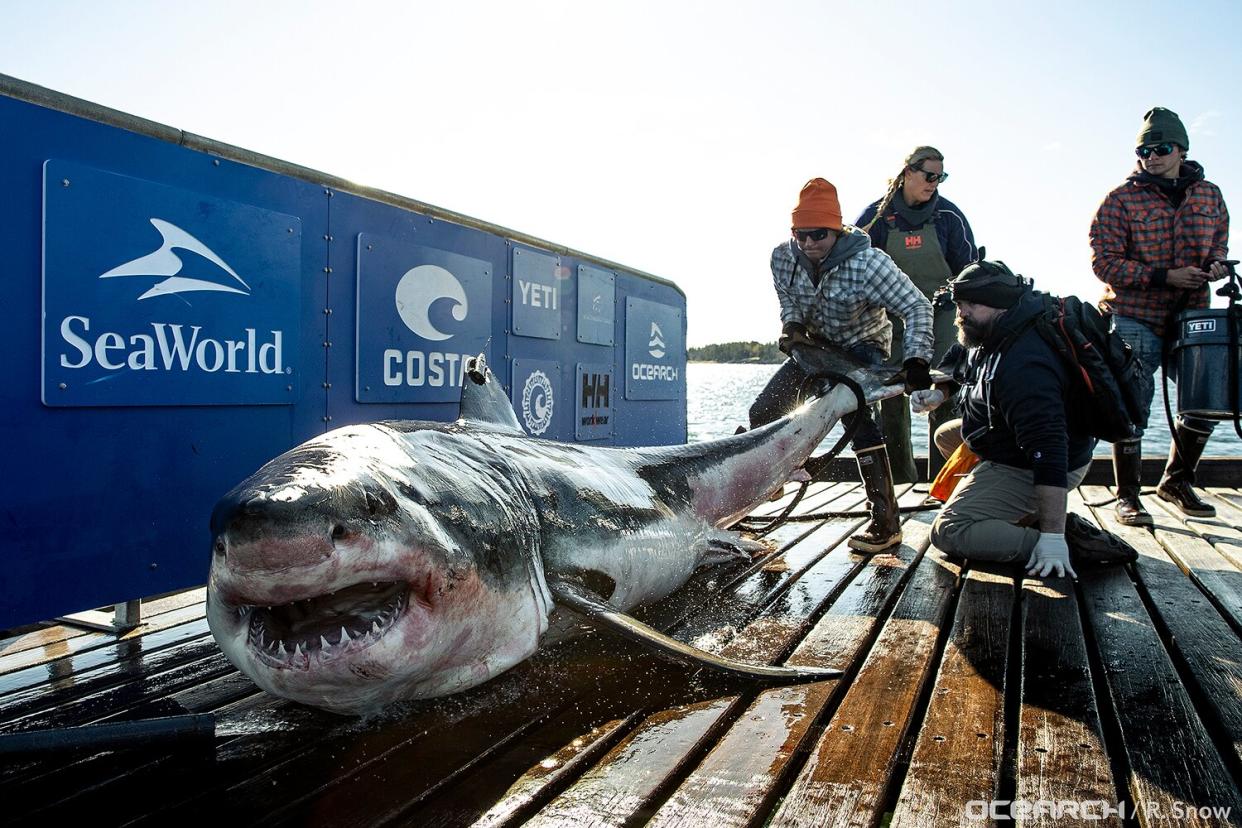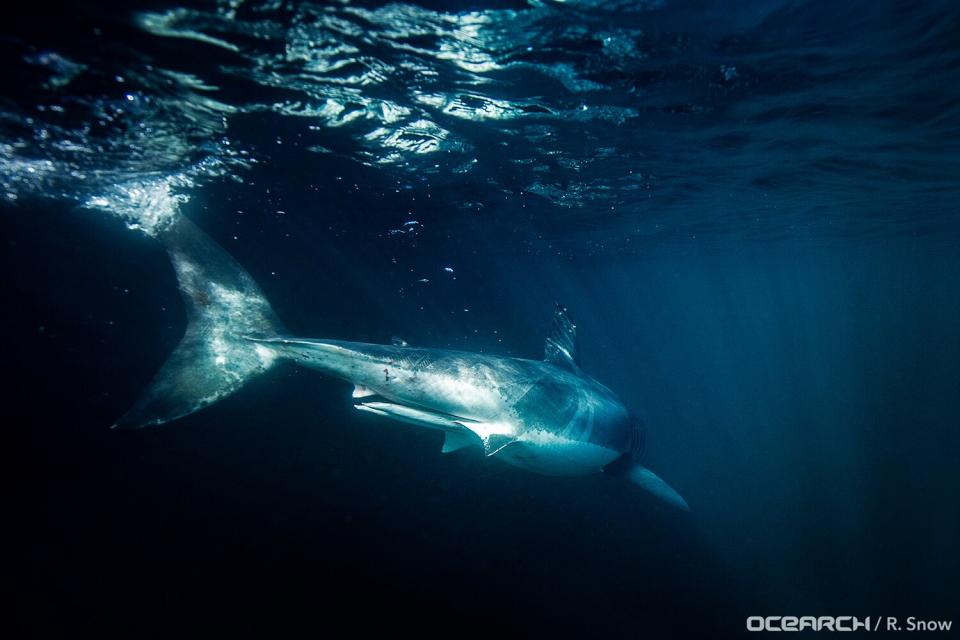Researchers Are Tracking a 1,000-Pound Great White Shark Along the Eastern Coast of the U.S.

Robert Snow/OCEARCH
A 1,000-pound shark equipped with a research tracker is swimming off the eastern coast of the United States, last pinging near the shores of North Carolina.
Ironbound, an adult great white shark, is 12 feet, 4 inches long, and weighs an estimated 998 pounds, according to OCEARCH — a nonprofit marine research group that provides open-source data about shark migration.
OCEARCH first tagged Ironbound in 2019 in Nova Scotia and has been tracking his movements ever since.
Each time the great white's fin tag breaks the water's surface, data is sent to OCEARCH, and it can track the shark's location. A "Z-Ping" can also occur, which indicates a ping with no location data.
RELATED: Great White Sharks May Befriend Each Other in Hopes of Getting a Larger Meal, Research Finds

Robert Snow/OCEARCH
The latest ping from Ironbound came in at 12:43 pm on May 10 off the coast of North Carolina. After spending some time up north, the massive animal appears to be swimming south.
On April 28, around 10:30 pm, Ironbound pinged in the waters off the coast of New Jersey.
Since first being tagged in Nova Scotia, Ironbound has made his way up and down the eastern seaboard. He has gone as far south as the Florida Keys — nearing the Gulf of Mexico in 2020 and 2021 — and as far north as Halifax, Canada.
RELATED: Shark Attacks Increased in 2021, and Researchers Say the Pandemic Is Likely the Cause
Ironbound isn't the biggest shark the organization has encountered, Bob Hueter, a chief scientist at OCEARCH, told CNN. Hueter told the network that OCEARCH had tagged great white sharks as long as 17.5 feet and as heavy as 4,000 pounds.
Though Ironbound appears to be taking a detour back south, Hueter said it is common for great white sharks to move north in the spring and early summer.

